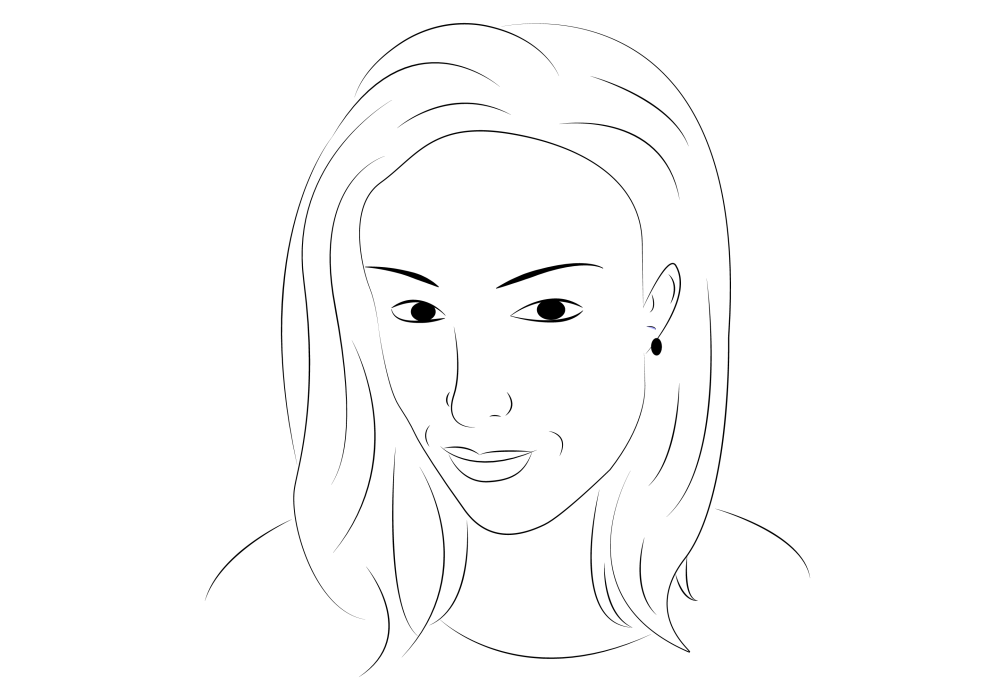By F. S. Ohedma
Translation by Paola García
I remember toothlessly gnawing on her crooked, calloused finger, trying so hard to figure out its purpose. I imagine her smiling down at my chubby, flailing body in her arms. The last of her babies to bond with, the last chance to do things differently. Even then I fed off her deep loneliness, her desperate desire to connect with another human. An inheritance she neither wanted to have, nor give. Love was instinctually warm and safe yet laced with inexplicable, inextricable sorrow.
:
I was six during the first Intifada. I saw my mother staring at the TV, eyes wide, cheeks glistening, chin dripping with tears. My siblings and I watched her breathlessly, unable to understand why she was in so much pain. I felt her tears burning my eyes as rivers of acid exploded down my cheeks. I never knew I could feel someone else’s pain so intimately. My insides churned, burned, dissolved into a torrent of confusion. I discovered love was empathy and compassion, though I did not know them by their names, taking others’ pain and making it my own.
:
Love unchecked was ruin in wait. I learned that love required rules, regulations, parameters. Love, like all matters in life, was governed by unforeseen forces prescribed to us by God and man alike. Queer love was self-annihilation. It was undeniably exhilarating – everything I ever wanted – but something I would never have. Queer love seemed dichotomous, a choice between happiness or life, family or abandonment, oscillating between water or air.
:
I believed suicide was an act of love. It was for my love of God and family that I would end my life. I was 19 years old, a sophomore in college. My sexual urges were undeniable. I yearned to be touched, embraced, given permission to love myself, but I knew it would be sinful. I convinced myself that my parents would rather have a dead son than a queer one. I lined seven pill bottles and emptied their contents into a rainbow cocktail, the irony not lost on me. I tossed the pills and capsules in my hand, listening to their dull rhythmic clinging, feeling them stick to each other and my skin. I did not think. I did not want to think about the sin of suicide possibly outweighing the sin of being queer. «God would forgive me. He had to,» I told myself.
:
«I’m gay.» The words fell out of my mouth before I could choke them back down. «I know,» my Muslim roommate responded, «and that doesn’t change a thing. I love you for who you are. It’s time you start to love yourself the way all of us do.» I was 23 when the undeniable truth wretched itself from my very being. I was exposed, the truth out in the open, but the world was not destroyed. I was not lynched, chased out of my home, or abandoned by my friends. In fact, they admired my courage and strength. If God created me in my best form, then he made no mistake in making me queer. I was born this way, despite what the imams said, despite what my family believed. I am short, stocky, black-haired, golden-skinned, male, queer. I am perfectly imperfect. I deserve love. Most importantly I deserve life.
:
I skinny-dipped in his cerulean eyes from the moment I saw him. I felt my guts churn in an entirely new way. I wondered what he saw when he looked at me. Every insecurity came blaring to the forefront, but I didn’t care. I wanted to stand naked before him in every conceivable way. When I stripped away his striking beauty, I was awed by his unapologetic sense of self, his deep understanding of injustice and his thriving will to change the world. When I am around him I am elevated. I am aware of what I can become, flying high above the clouds, and yet all the while anchored to the world. He is the promise of endless possibility couched in pragmatic solutions. He loves the things about me that I often hate most, and when I look at myself through his eyes, he teaches me how to continue loving myself.
:
I have accepted that altering my story does not undo my truth, does not undo the damage done to my psyche, does not elevate me in the eyes of God or the world. I must be brave enough to stare down the unsavory truths I perceive, understand their impact on my habits and behaviors, love myself in the way I must, and slowly, painstakingly, let go of the emotional bondage that ties me to self-hate and unfettered stagnation.


